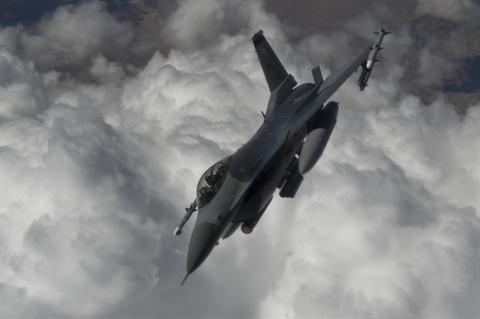US: Iran Strike Means Major ME War, Costs More than Iraq, Afghanistan

US military strikes on Iran would lead to an all-out war in the Middle East.
According to a US assessment of an attack's costs and benefits, the report said that "a US strike would shake the regime's political control and damage its ability to launch counterstrikes, but the Iranians probably would manage to retaliate, directly and through surrogates, in ways that risked igniting all-out war in the Middle East."

The assessment claimed that "extended US strikes could destroy Iran's most important nuclear facilities and damage its military forces, but would only delay - not stop - the Islamic republic's pursuit of a nuclear bomb."
"You can't kill intellectual power," said retired Army Lt. Gen. Frank Kearney, who endorsed the report. He is a former deputy director at the so-called National Counterterrorism Center and former deputy commander of US Special Operations Command.
The report compiled by US former government officials, national security experts and retired military officers is to be publicly released Thursday.
It added that achieving more than a temporary setback in Iran's nuclear program would require a military operation - including a land occupation - more taxing than the Iraq and Afghanistan wars combined.
The assessment emerges against the backdrop of escalating tensions between "Israel" and the US over a military strike on Iran.
"Planners and pundits ought to consider that the riots and unrest following a Web entry about an obscure film are probably a fraction of what could happen following a strike - by the "Israelis" or US - on Iran," retired Lt. Gen. Gregory Newbold, an endorser of the Iran report and a former operations chief for the Joint Chiefs of Staff, said in an interview.
The report was compiled and endorsed by more than 30 former diplomats, retired admirals and generals and others..
"We do not believe it would lead to regime change, regime collapse or capitulation," it said, adding that such an attack would increase Iran's motivation to build a bomb, in part because the Iranian leadership would see building a bomb as a way to inhibit future US attacks "and redress the humiliation of being attacked."
"Given Iran's large size and population, and the strength of Iranian nationalism, we estimate that the occupation of Iran would require a commitment of resources and personnel greater than what the U.S. has expended over the past 10 years in the Iraq and Afghanistan wars combined," the report said.
The US had as many as 170,000 troops in Iraq at the height of the 2003-10 war, and US troop levels in Afghanistan peaked last year at 100,000. Eleven years into the Afghan war the US still has about 74,000 troops there.
Source: News Agencies, Edited by moqawama.org
Comments
- Related News

US Senate Votes 15-3 for Arming Syrian Opposition
12 years ago


